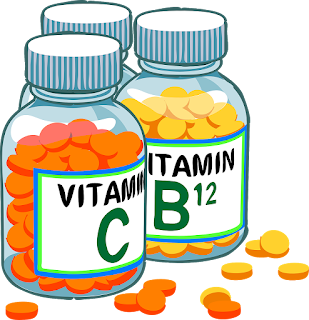Dietary Supplements: Do I Need Them?
sup·ple·ment (noun)
/ˈsəpləmənt/
1. Something that completes or
enhances something else when added to it.
There
are several supplements available on the market, including vitamins, minerals,
herbs, amino acids, hormones, concentrates, extracts, and probiotics. They
aren’t considered food or drugs, and they aren’t intended to treat, diagnose,
reduce, prevent, or cure any condition or disease.
 Found
as tablets, softgels, gelcaps, capusles,
liquids, powders, and energy bars,
dietary supplements may seem like an easy way to boost your health, but a
common misconception in the industry is that supplements can be a quick fix to
an unhealthy diet, when in reality, they are not meant to replace healthy foods.
As the definition states, a supplement is intended to be an addition, not a replacement. In this case, a supplement can be added to the diet when you
aren’t getting enough from the foods you eat, in other words, not a substitute. Unlike supplements,
whole foods provide nutrients, fiber, and other natural substances that promote
health, so opting for whole foods is the preferred way to meet your nutrient
goals.
Found
as tablets, softgels, gelcaps, capusles,
liquids, powders, and energy bars,
dietary supplements may seem like an easy way to boost your health, but a
common misconception in the industry is that supplements can be a quick fix to
an unhealthy diet, when in reality, they are not meant to replace healthy foods.
As the definition states, a supplement is intended to be an addition, not a replacement. In this case, a supplement can be added to the diet when you
aren’t getting enough from the foods you eat, in other words, not a substitute. Unlike supplements,
whole foods provide nutrients, fiber, and other natural substances that promote
health, so opting for whole foods is the preferred way to meet your nutrient
goals.
In
most cases, dietary supplements aren’t necessary because a well-balanced diet
can provide all of the necessary nutrients to your body needs. Good nutrition
results from obtaining nutrients from food, but there are some exceptions to
this general rule. In some cases, adding a dietary supplement is necessary. So how do you know if you
need a dietary supplement?
Your
doctor or registered dietitian nutritionist may recommend a dietary supplement
under certain circumstances to help you meet your daily nutrient needs, for
example:
1. Women with heavy menstrual bleeding may need an iron
supplement due to blood loss (since iron is a main component of blood).
2. Pregnant or breastfeeding women may have increased
nutrient needs, specifically folate, iron, calcium, and vitamin D.
3. Women planning on becoming pregnant need adequate folic acid
which may require supplementation.
4. Individuals on restrictive diets for medical or personal
reasons may need supplementation when certain foods are not consumed regularly
in the diet.
5. Individuals with limited milk intake and sunlight exposure such as those with lactose
intolerance or low dairy intake may be recommended a calcium and vitamin D
supplement for bone health. Individuals who live in northern states and all
others who have limited access to sunlight, especially during winter months,
may be advised to take a vitamin D supplement.
6. Vegetarians and vegans may be recommended calcium, iron, zinc,
vitamin B12 and vitamin D, or for individuals whose regular diet supplies
limited meat, dairy, and other animal products.
7. Individuals with certain health conditions including those that
affect appetite, eating, or the ability to absorb and utilize nutrients (such
as digestive and liver disease) may be advised supplementation. Surgery and
certain injuries that require medication that interfere with vitamin
absorption, as well as allergies and intolerances that restrict foods from the
diet will also benefit from supplementation.
8. Older adults may benefit from calcium and vitamin D
supplementation for bone health.
Dietary
supplements are not FDA approved for safety and effectiveness, which is why
they should be used only under medical and healthcare professional supervision.
As always, the food first approach is
encouraged for meeting nutrient recommendations, but supplements can be
necessary in the diet under certain circumstances when recommended by your
registered dietitian nutritionist. So before throwing that bottle of
supplements in your cart at the grocery store, consider adding whole grains,
fresh fruits and vegetables, and other nutrient-rich foods into your diet to
get the necessary nutrients you need for a healthy lifestyle.
E.L.
Duyff, R. L. (2017).The Complete Food and Nutrition Guide
(5th ed.). New York, NY: Mifflin Harcourt Publishing Company.
Definition of Supplement. (n.d.) Lexico Powered by Oxford. Retrieved from https://www.lexico.com/en/definition/supplement
Definition of Supplement. (n.d.) Lexico Powered by Oxford. Retrieved from https://www.lexico.com/en/definition/supplement

.png)
Comments
Post a Comment